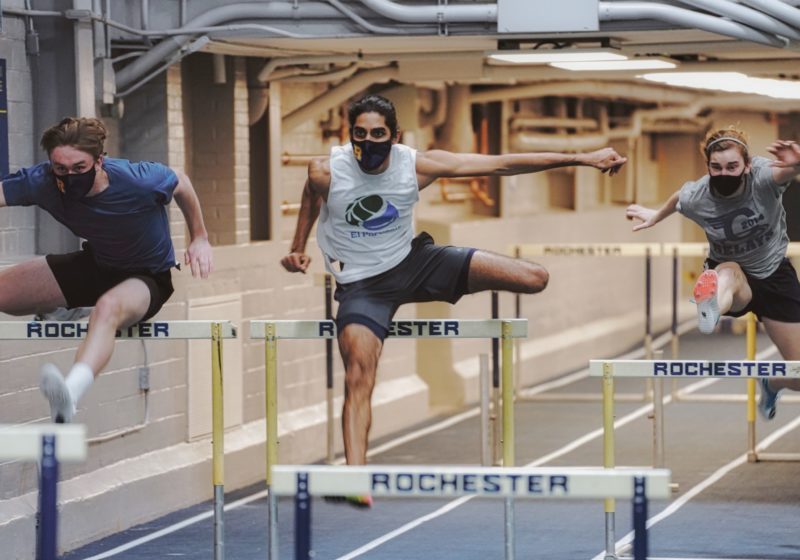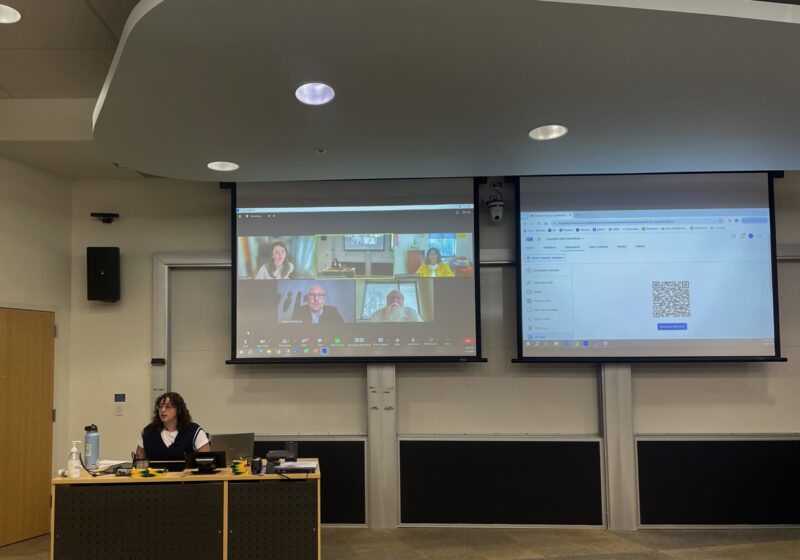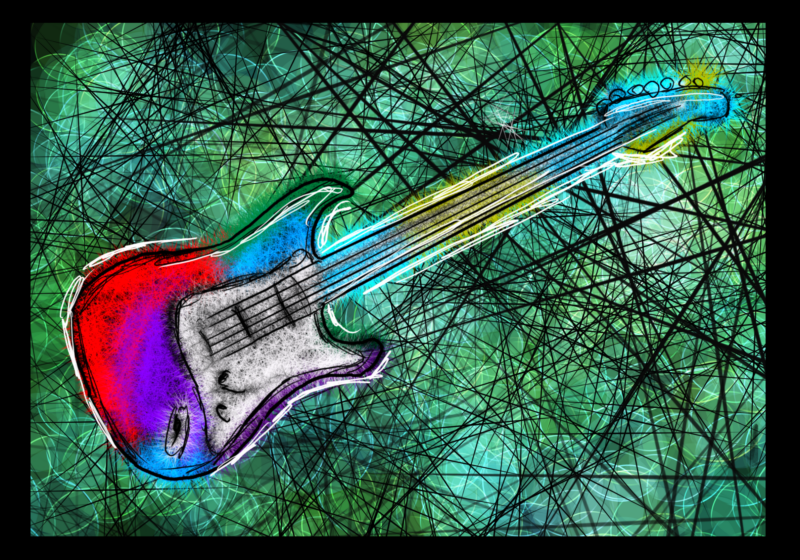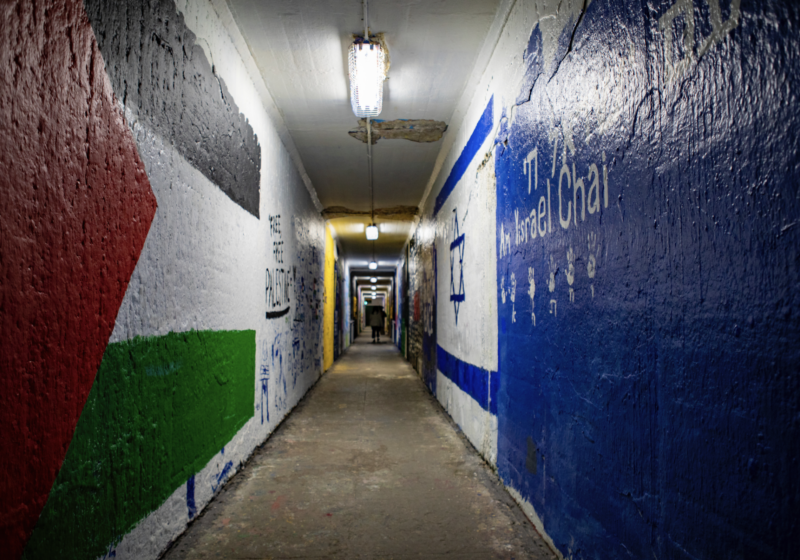UR’s varsity Yellowjackets have enjoyed a triumphant return to competition. Beginning in late February, many teams — including track and field and men’s basketball — were given clearance by the University to begin modified versions of their typical seasons.
I recently had the pleasure of speaking with several coaches and students on their experiences with starting back up. This past week, I spoke with Coach Luke Flockerzi and seniors Ryan Algier, Kailan Lee, and Trent Noordsij from the basketball team, as well as Coach Sam Albert ’01, the director of the track and field and cross country teams.
Despite the obvious hardships, the coaches and students highlighted some benefits of their nontraditional seasons.
For the basketball team, they got the green light to compete at a time when they would typically be nearing a season’s end. The extended practice period meant lots of individualized skill attention, said Flockerzi, as well as an increase in the level of competitiveness in day-to-day drills, said Algier and Noordsij. The coaches initiated three-on-three play and methods of tracking shooting numbers for the players to help them maintain their motivation and competitive spirit.
Albert echoed this positive outlook, describing benefits his team has gained from the disruption of normalcy. He looks forward to the increase in small-scale meets this year, such as duals and triangulars, something that he feels has been lost in recent years in favor of larger events.
Throughout the past year, the track and cross country teams connected with other collegiate programs in a creative way: They set up courses at UR for their athletes to run and then recorded times to compare and score with their opponents, simulating races. Albert said that athletes were enthusiastic about finally being able to have their first official meet this winter.
“From the conversations that I had with most of our athletes, I think it was more excitement than nerves,” he said. “They’ve been working and training for such a long period of time now without a chance to compete.”
Seeing upcoming basketball games and track meets on the calendar has boosted morale and given the teams goals. The officially sanctioned competitions resulted in increased motivation and intensity and breaks in redundant student life cycles. The seasons’ beginnings have improved athletes’ mental and physical health and, as Flockerzi said, “You can kinda just see the glimmer in their eyes and the excitement at just kind of reclaiming some kind of normalcy.”
Algier missed his team’s camaraderie most during the time off. But he was also grateful for any opportunity to continue playing, saying that “to be able to play this year is rewarding in its own way.”
Noordsij shared his sentiment: “When I have the most fun on the court is when all five guys are really clicking, and we’re executing the stuff we work on in practice, and everything is going in our direction; moments like that is when I get the most excited playing games” — a feeling that remains the same this season.
Algier and Noordsij will be utilizing their fifth years of NCAA eligibility in 2021-2022 as Take 5 Scholars at UR, but this season is Lee’s last. He expressed an immense amount of gratitude and excitement in getting to compete for a final round, and considered it a chance to “reap the rewards” of UR’s caution and COVID-19 protocols in the fall.
“I definitely feel really fortunate to be able to have these final moments on the court,” said Lee.
All five men on the team shared the sentiment that practices this semester have felt very similar to those of years past. Both Coaches expressed a sense of commitment to their missions to improve student athletes’ college experiences. “We want our players to have a positive experience through athletics and have it be an additive element to their educational experience; that hasn’t changed,” said Flockerzi.
All of the players and coaches expressed gratitude to UR and the trainers, medical staff, coaches, athletes, and general student population for everything they’ve done to keep athletics running and healthy despite the pandemic.
“We have students that I think are really responsible and mature and [who] understand the circumstances,” Albert said.
Like the rest of the UR community, the student athletes must complete Dr. Chatbot and follow mask protocol. Added safety measures include limited locker room capacities, extra COVID-19 testing, lower bus densities, athlete-specific daily health checks, and following the NCAA DIII guidelines for only facing opponent teams that have tested their members at least three times per week.
Keeping in line with New York state’s travel guidance, UR’s restrictions on visitors to campus, and travel outside of a 100 mile radius, the teams cannot hold home competitions, and competitors are located closer to campus than normal. The basketball team is calling downtown Rochester’s Blue Cross Arena “home” for this season and has faced Yeshiva, Bryant & Stratton, and Nazareth thus far.
Track and field traveled to Nazareth for an indoor triangular meet Saturday, Feb. 27, and plans to compete there once more before proceeding to their outdoor season in the Liberty League, which just gave the go-ahead to begin scheduling spring conference meets.
Stay tuned to watch these teams’ progressions as they optimistically move forward.







